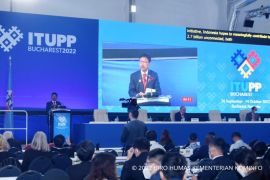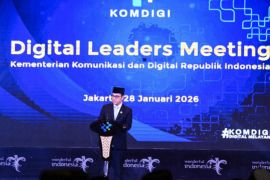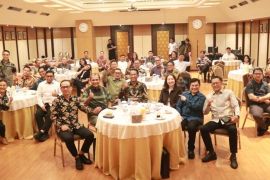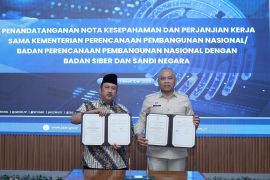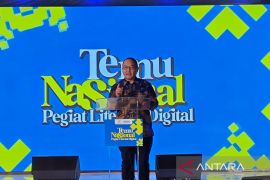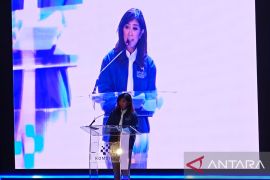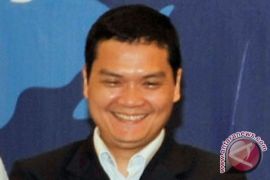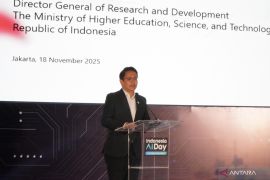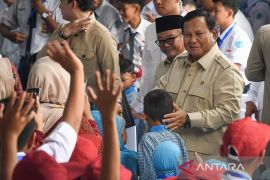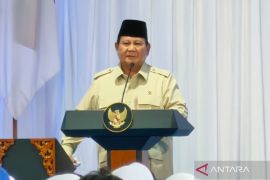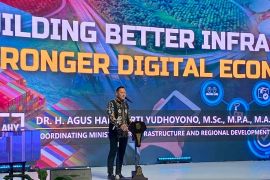The DEWG is a part of the G20 Sherpa Track. The working group was initiated with the formation of the G20 Digital Economy Task Force (DETF) in 2017 during the German G20 presidency.
The group was tasked with discussing the implementation of an interconnected, protected, and safe digital technology to develop an inclusive, resilient, and sustainable digital economy.
The second DEWG meeting under Indonesia's G20 Presidency, which is being held in Yogyakarta from May 17–19, 2022, is focusing on the issue of digital connectivity.
As the chair of the G20 Presidency, Indonesia is encouraging DEWG participants to discuss three priority issues: digital connectivity and post-COVID-19 recovery, digital skills and digital literacy, as well as cross-border data flow and trusted free data flow.
Minister of Communication and Informatics, Johnny G. Plate, on Tuesday commended the attendance of delegates, both physically and virtually, at the second DEWG meeting in Yogyakarta.
"Welcome to Yogyakarta. I am pleased to welcome you all to the Digital Economy Working Group meeting in Yogyakarta, Indonesia," the minister remarked.
The second DEWG meeting in Yogyakarta is being attended by delegates from the United States, Argentina, Australia, Brazil, France, Germany, the United Kingdom, India, Italy, Japan, South Korea, Saudi Arabia, Turkey, and the European Union.
Meanwhile, the meeting is being attended virtually by delegates from Canada, China, Mexico, South Africa, and Russia.
The DEWG meeting is also being attended by representatives of the International Telecommunication Union (ITU) and the Organisation for Economic Co-operation and Development (OECD).
In Yogyakarta on Tuesday, Minister Plate told the delegates about the Javanese philosophy of Memayu Hayuning Bawono, which means “every human being is trusted to add to the world's beauty.”
"With this philosophy, I hope we would be able to work hand in hand to make the world a better place, especially through digital technology," he remarked.
The minister expressed optimism that the event would offer a memorable experience for delegates.
He also expressed the hope that the second meeting of the G20 DEWG would lead to the most suitable agreement.
The meeting is expected to produce an output document, namely a declaration on the priority issue of connectivity and post-COVID recovery.
Since 2016, the G20 has deemed digitalization as an essential catalyst for economic growth.
In light of this, Indonesia's G20 Presidency will showcase several initiatives in the digital economy sector to bolster deliberations during the second G20 DEWG forum, the Communication and Informatics Ministry's secretary general, Mira Tayyiba, affirmed.
The initiatives will be presented at the Wall of Indonesia's Digital Transformation, which is an initiative by G20 DEWG's Industry Task Force members that consists of various industry actors, she informed.
Digital Talent, Leadership
In line with the spirit of digital transformation, the Ministry of Communication and Informatics has officially launched the National Digital Talent Scholarship (DTS) and Digital Leadership Academy Scholarship programs for this year. The programs are open to the public and free of charge.
"The intensification of digital transformation has implications for the increasing need for digital talents. These digital talents will be the main navigators driving the digital ecosystem," said Minister Plate.
The Digital Talent Scholarship and Digital Leadership Academy have been regular programs of the Ministry of Communication and Informatics over the past few years.
The ministry has allotted a quota of 200 thousand seats this year for some technical training, including in cloud computing, Big Data, artificial intelligence (AI), and cyber security.
This year's DTS covers seven academies, namely the Vocational School Graduate Academy, Government Transformation Academy, Digital Entrepreneurship Academy, Professional Academy, Thematic Academy, Fresh Graduate Academy, and Talent Scouting.
Meanwhile, the Digital Leadership Academy program is open to digital policy makers from both government and private circles, with a quota of 550 seats allocated for this year.
Like the previous program, for this year's Digital Leadership Academy, a collaboration has been inked with eight foreign universities, including Tsinghua University, Harvard Kennedy School, Oxford University, and the National University of Singapore.
The scholarship programs have been created to develop Indonesian digital talents in order to close the gap between the availability and the need for talents, both nationally and in the Asia-Pacific region.
At the national level, at least 50 percent of digital talents in Indonesia have basic and intermediate digital skills, while there are less than 1 percent digital talents with advanced abilities, according to the ministry.
In the Asia-Pacific region, more than 50 percent of CEOs have difficulty recruiting digital talents with the right skills. As the result, the region is expected to experience a deficit of around 47 million digital talents by 2030.
"Of course, this gap must be taken seriously. Moreover, we want to create a more competitive Indonesia in the global arena," Minister Plate said.
Furthermore, digital talents must also be seen as a great potential since Indonesia has thousands of startups that operate digitally. The nation currently has one decacorn and eight unicorns.
"A visionary way of thinking is very important so that we do not only become a market, but also become a major player in the (digital) contestation, both at the regional and global levels," Plate remarked.
Related news: Ministry seeks to ensure digital transformation benefits people
Related news: RI encourages G20 countries to bolster digitisation for recovery
Editor: Rahmad Nasution
Copyright © ANTARA 2022

